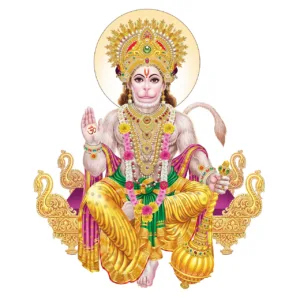The Ramayana, an ancient Indian epic, holds a special place in the hearts and minds of millions worldwide. Its timeless tale of love, loyalty, and the triumph of good over evil has inspired countless retellings throughout history. In this article, we delve into the world of remarkable Ramayana retellings that have captivated readers with their unique perspectives, creative interpretations, and compelling narratives. From traditional adaptations to modern reinventions, these retellings offer a fresh lens through which we can experience the epic and its profound teachings.
“The Palace of Illusions” by Chitra Banerjee Divakaruni:
This feminist retelling of the Mahabharata, another Indian epic, offers a unique perspective on the Ramayana. The story is narrated from the viewpoint of Draupadi, the wife of the Pandavas. Divakaruni brings depth to Draupadi’s character, shedding light on her struggles, resilience, and agency. Through Draupadi’s eyes, readers gain insight into the challenges faced by women in a patriarchal society and the power dynamics at play in the Ramayana.

“Asura: Tale of the Vanquished” by Anand Neelakantan:
In this thought-provoking retelling, the story is narrated from the perspective of Ravana, the demon king. Neelakantan challenges the traditional portrayal of Ravana as a villain and prompts readers to question the notions of good versus evil. By delving into Ravana’s motivations and inner conflicts, the author humanizes this iconic character and invites readers to reconsider their preconceived notions. This retelling offers a fresh and nuanced understanding of the Ramayana.

“Ram: Scion of Ikshvaku” by Amish Tripathi:
Amish Tripathi, known for his mythological fiction, presents a blend of history and mythology in his retelling of the Ramayana. The story explores the life of Lord Ram, the central protagonist, in a historical context. Tripathi’s narrative style and vivid storytelling bring a contemporary flavor to the ancient epic, making it accessible to a wide range of readers. This retelling combines myth and historical fiction to create a compelling narrative that captivates the imagination.

“Sita: An Illustrated Retelling of the Ramayana” by Devdutt Pattanaik:
Devdutt Pattanaik, a renowned mythologist and author, offers a visually stunning and insightful retelling of the Ramayana. With beautiful illustrations and concise storytelling, Pattanaik focuses on Sita, the wife of Lord Ram, and delves into her thoughts, emotions, and experiences. This retelling emphasizes the strength, resilience, and wisdom of Sita, highlighting her as a symbol of empowerment and showcasing her agency in the face of adversity.

“The Ramayana for Children” by Bulbul Sharma:
This simplified version of the Ramayana is tailored for young readers, introducing them to the epic’s key stories, values, and moral lessons. Bulbul Sharma’s retelling retains the essence of the Ramayana while making it accessible and engaging for children. Through vibrant illustrations and age-appropriate language, young readers can embark on an enchanting journey through the epic, learning valuable lessons about courage, integrity, and the power of good over evil.
These five retellings exemplify the diversity and creativity that exist within the world of Ramayana adaptations. Each one offers a unique perspective, whether through feminist reimagining, alternative viewpoints, historical blends, or simplified versions for young readers. They breathe new life into the ancient epic, making it relevant and relatable to contemporary audiences.

In conclusion, the best retellings of the Ramayana have left an indelible mark on readers, offering fresh insights, thought-provoking narratives, and alternative interpretations of this timeless epic. From exploring feminist perspectives to humanizing iconic characters, these retellings have expanded our understanding and appreciation of the Ramayana’s profound teachings and enduring relevance. Whether through the powerful voice of Draupadi, the empathetic portrayal of Ravana, or the historical context of Lord Ram’s life, each retelling brings a unique flavor to the epic, inviting readers to rediscover the magic of the Ramayana in a new light.
Life Lessons from Lord Rama: Inspiring Wisdom for Modern Times.
Mentors of Ancient Wisdom: Exploring the Ten Greatest Mentors of Ancient Indian History.














